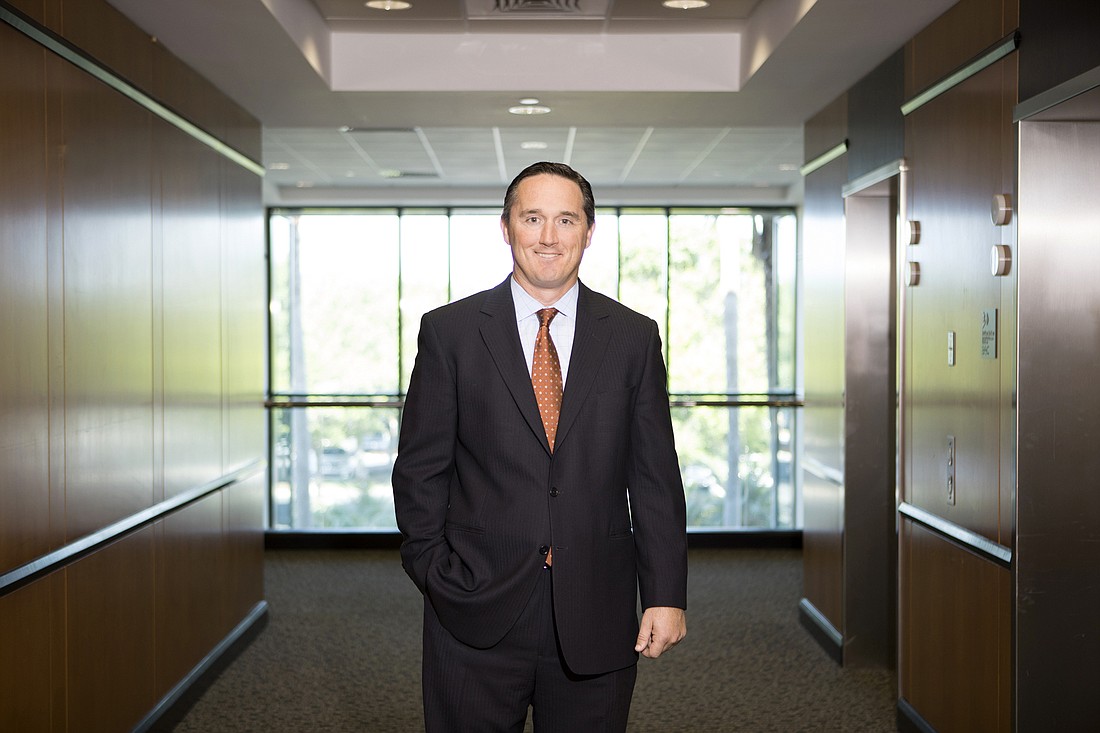- December 25, 2024
-
-
Loading

Loading

UnitedHealthcare Florida CEO Greg Reidy’s career path is rare among executives.
He started with the company nearly a quarter of a century ago — in sales, not management — and never left despite being shuffled around the country as United continued to expand its membership base.
Now 46, Reidy finds himself leading the company’s commercial business in Florida, which serves more than 1 million employers and individuals. He came to United’s Tampa headquarters about a year ago, after being CEO of the company’s Arkansas and Tennessee territory, based in Nashville, for seven years. He’s also been part of United’s New England leadership team.
Reidy recently spoke with the Business Observer about leadership and other topics, in his career and health care. Edited excerpts:
“We have to have the confidence to be wrong, because that allows you to advance.” — Greg Reidy, CEO of UnitedHealthcare Florida.
What sets UnitedHealthcare apart from its competition? Our culture is unique, and our people are incredible in terms of the passion that they bring each and every day, to support people and help them live healthier lives. I think the diversity of our company is great, in terms of all the different things that we do in the health care landscape. And that allows employees to look around and say, ‘I want to try that or I want to develop myself and get into a different part of our business.’ So that mobility to contribute in different ways in the company is just outstanding.
What are your challenges in the Florida market?
If you think about the health care landscape today, there is this move toward consumerism. But we’ve been very successful selling to employers who pick plans for their employee base. What we’re trying to do is take all the things that we think we do really well, for each of our members that we’re privileged to serve, and bring those consumer tools to them so they can get a complex system more effectively. I think we’re getting better at it, but we keep trying things. We spend billions of dollars every year to develop new applications for our members. If it works we can scale it across the country and if it doesn’t work we move on to the next thing and do better.
So you’re comfortable taking risks?
As a business leader, I have to be a role model for our employees, too. Otherwise we don’t advance our position in the marketplace. One of the things we talk about on our leadership team is that we have to have the confidence to be wrong, because that allows you to advance.
How would you describe your leadership style and how it has developed?
Having started as a sales rep, I probably underestimated the skills of leaders I worked for because I was focused on selling. I think my style is supportive. The goal, and I say this and people laugh at me, is to make yourself less important over time. Because you’re investing in people, you’re helping them get where they want to go. You’re contributing to the company through different people, in different ways. You having to be involved every step of the way, in a way that makes you less relevant. Over the past decade or so, that style has served me pretty well.
What is something you do every day that contributes to your effectiveness?
[Reidy pulls out a thick, heavy binder full of lists.] A: So here are my lists. Each and every day, you have to make a decision: ‘Am I going to work on 100 things or am I going to do three things really darn well, and advance our business to try to do things in better ways?’ And what I try to do is orient our business around where the noise is, or where the opportunity is.
I think about blue chips and white chips. Blue chips are the things that we need to focus on each and every day. And white chips are sort of the ‘nice to haves.’ I try to force myself to think in time continuums about what will change our business in the future as opposed to right now. That typically allows the blue chips to bubble up to the top.